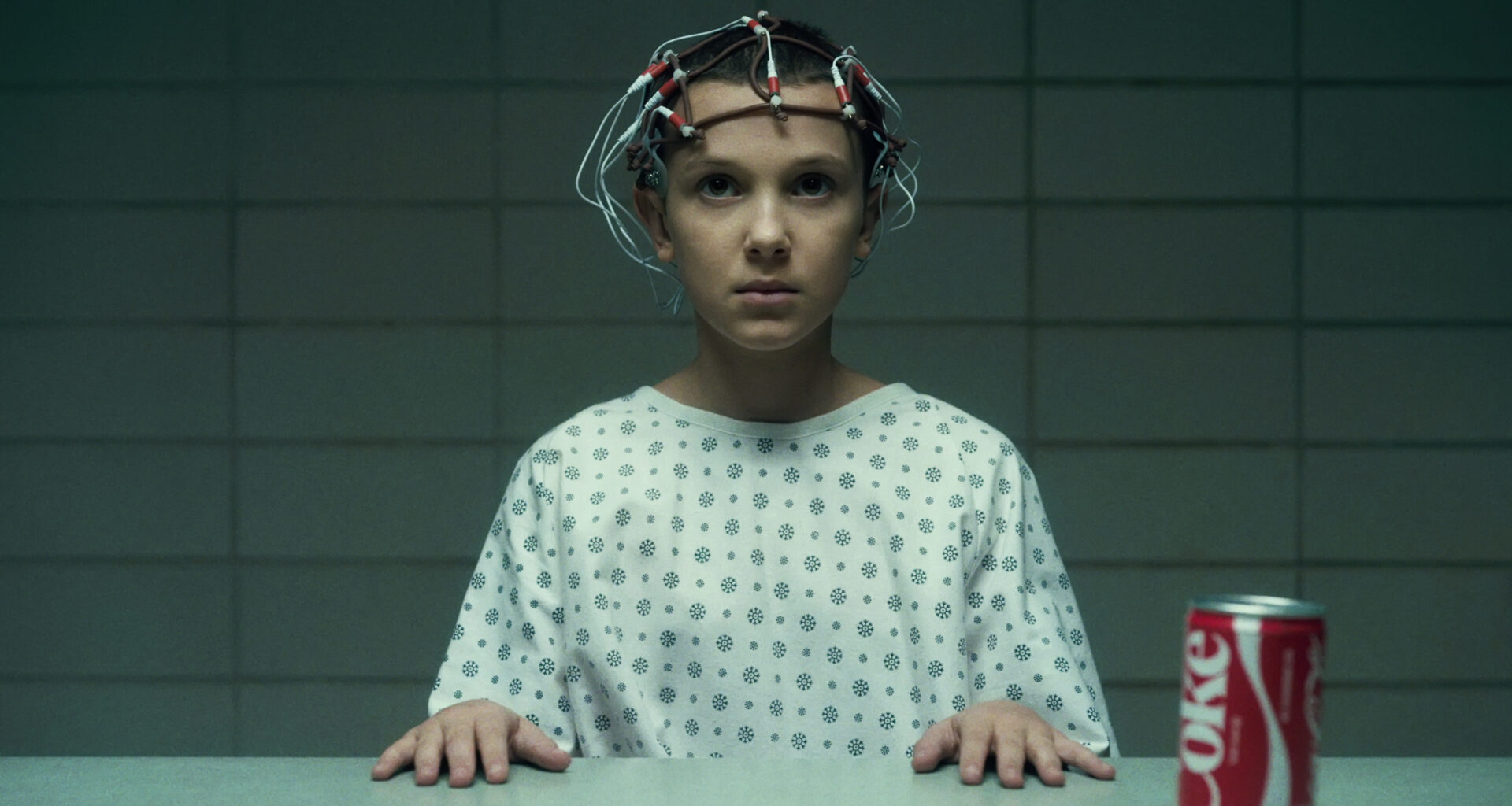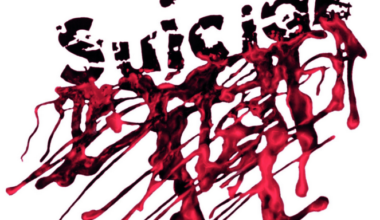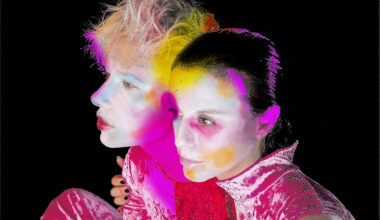Caught in the slipstream of a killer synth score for the TV event of the year, one half of S U R V I V E, a little-known synth band from Texas, and 100 per cent the ‘Stranger Things’ soundtrack composers, we communicate via fairy lights with Michael Stein and Kyle Dixon
“We went to see [horror slasher movie] ‘You’re Next’ a few years ago together,” says Michael Stein, one half of the partnership with his old pal Kyle Dixon (they met when they were 15) who scored the Netflix summer smash ‘Stranger Things’. “Towards the end of the film, there’s some synthesiser stuff, and it gets a little more horror synth, when we walked out we were like, ‘That was good, but we should do that…’.”
“And the next thing we know,” says Kyle Dixon, “Adam Wingard licensed some of our music for his film ‘The Guest’, and we said, ‘Oh, that was the guy who did that movie we thought we should be doing the music for!”
Two years after ‘The Guest’ closed the loop on their first soundtrack experience, Michael and Kyle are sitting on top of the scoring pile for their work on ‘Stranger Things’.
If you are, ahem, of a certain age, then ‘Stranger Things’ will resonate on many levels. Set in the early 1980s, its milieu of small town America where something is about to go Horribly Wrong triggers dozens of Proustian flashbacks to Stephen King novels consumed by torchlight under duvets, you can smell every popcorn and Poppets-strewn suburban cinema you visited in the 1980s. It’s a beautifully-made 4K rendering of a 1980s weekend binge of scary movies rented on VHS.
And then there’s the music. Not only has the TV show hit a home run ratings-wise, there’s a considerable explosion of online love for the spooky electronic score. The main theme is surely destined for the kind of collective memory banks where the whistling ‘The X-Files’ title music lurks, side by side with Angelo Badalamenti’s beautiful ‘Twin Peaks’ work. It builds into a tense glory of analogue electronics set to a heartbeat pulse which recalls the 1970s scoring work of Tangerine Dream and John Carpenter, yet is wholly 2016. And it does what all good TV themes should; adjusts your brain into a state of readiness, via the magic of music, for the imminent scare-a-thon.
Kyle Dixon and Michael Stein are one half of S U R V I V E (yes, they have one of those millennial typographical nightmare names), a previously little-known synth quartet based in Austin, Texas, who are now blinking in the bright lights of some very sudden attention. Like most overnight success stories, they’ve had a trajectory that started way out in deep space before they spectacularly collided with pop culture this summer.
A couple of self-released cassettes emerged in 2011, and their eponymous debut album was released in 2012 (the Italian label Mannequin knocked out 300 clear vinyl copies; good luck finding one of those) and now they are about to release their second album, ‘RR7439’ (named, like all their releases, by its catalogue number). Their score to ‘Stranger Things, having already shot to the top of download charts, is also being delivered to an eager public in two handsome editions of coloured vinyl. All this, and ‘Stranger Things’ season two has been commissioned. It’s no wonder that the composers are still reeling from the reaction their score.
“It went to Number One on iTunes,” says the affable Kyle Dixon. “For a score, that’s crazy, that just doesn’t… I feel like that might be a record or something. Has that ever happened before? I mean, there’s no lyrics. We didn’t expect it, but it’s been great. People who don’t know about synthesisers at all are into it.”
“We knew people would be talking about the show,” says Michael, who has a slightly sterner demeanour than his writing partner, but who nonetheless wears a look of happy resignation. “We recognised it was a good show, but we didn’t think the focus would come back to the music so strongly.”
“The Duffers [twin brothers Matt and Ross Duffer, creators and directors of ‘Stranger Things] wanted the music to be a big part of the show,” adds Kyle. “And they wanted people to be talking about the music, which is why they brought us in so early in the process, a lot earlier than you usually would for a TV show.”
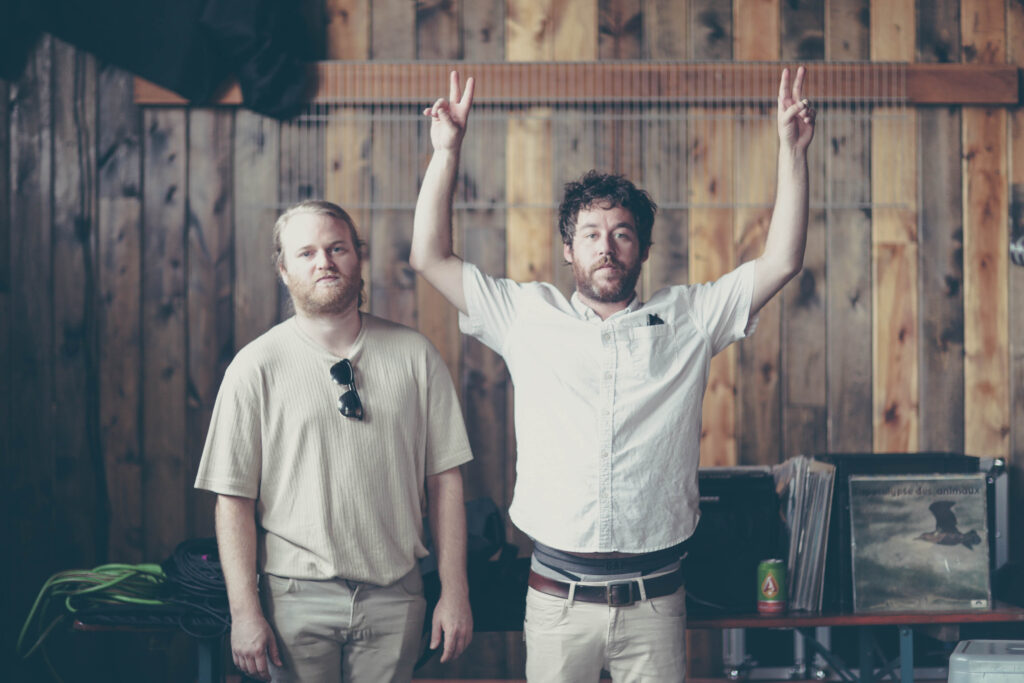
Kyle and Michael were hired even before the actors were cast, and demos the pair had started working on for the show were played over the actors’ audition tapes during the casting process to help set the mood and even influence the choice of actors. When asked about the reason the Duffers choose two members of a relatively obscure synth band to score their big budget Netflix TV event, they become further nonplussed. “We don’t know…” they shrug.
“I think they were just fans of the music,” says Michael, “and they found the band somehow. I think a lot of the people in Hollywood, producers and filmmakers, talk about stuff they’re into. If you’re into music, and you’re making films, instrumental music is going be something you’re somewhat interested in.”
When pushed, they assume their music came to the attention of the directors because those two cuts from S U R V I V E’s debut album that had been licensed to ‘The Guest’ soundtrack, which also featured tracks from Clan Of Xymox, Love And Rockets, Front 242, The Sisters Of Mercy and DAF. “Probably someone saw that movie and then found out about us through that, but we really don’t know,” they mumble.
The prosaic reality here is that any smart band, especially one with writers who, like Kyle and Michael, have the ability to create music with emotional range are going to take one look at the options presented by the 21st century music biz and aim for Hollywood instead. In this instance, the band is more a laboratory for creating new ideas and testing them on audiences who, on the whole, pay next to nothing for the privilege, but by doing so help them advance to the next level. Like in some platform-jumping video game, they vault from playing small clubs and making limited edition cassette and vinyl releases to getting in front of LA music supervisors. Is S U R V I V E a vehicle of convenience? Certainly scoring movies was written into the code of Kyle and Michael’s efforts.
“We’ve been talking about doing this for years,” says Kyle, “but we’d didn’t really know how to start. The only thing we thought we could do was create a music library, although we talked more about it than we did it. We record constantly, and most of it hasn’t been heard, so our plan was to build some kind of library with categories that we could send to people and have them licence stuff. We never actually got it together, but we began to organise it and have some material online, like in a Dropbox between us, but nothing public-facing, so no one heard that stuff. We’d already done some of the prep work for different moods when we started working on this show. I’m glad we didn’t get round to doing it properly, because now we don’t particualrly need that. In short, we’d been planning to do it and we just lucked out.”
Did they even know about the technicalities of scoring when they started on ‘Stranger Things’?
“I read some books and I went to school and had a little bit of input on that,” says Michael. “But generally no, I didn’t really have any idea.”
Another reason the Duffers would have shown interest in their music is for its uncanny channelling of the electronic soundtracks that would have accompanied many of the films they grew up loving. The obvious antecedents are John Carpenter’s scores for his own pioneering films like ‘Assault On Precinct 13’, ‘Halloween’, and ‘Escape From New York’, and Tangerine Dream, whose work for William Friedkin’s ‘Sorcerer’ is a classic, and who also turned in a respectable soundtrack for a not particularly successful adaption of the Stephen King novel ‘Firestarter’.
The Duffer Brothers used Tangerine Dream tracks as well as Dixon and Stein’s score in ‘Stranger Things’, creating an interesting crossfade between the decades in the use of music as well as in the visuals.
“Where the police chief is tearing apart his trailer looking for a bug, there’s a Tangerine Dream song in that scene,” says Kyle.
“When things got a little more high energy,” says Michael, “they started using Tangerine Dream, that was probably the last four episodes. But I think in the beginning we were trying to establish our own sound, which isn’t really that much like Tangerine Dream.”
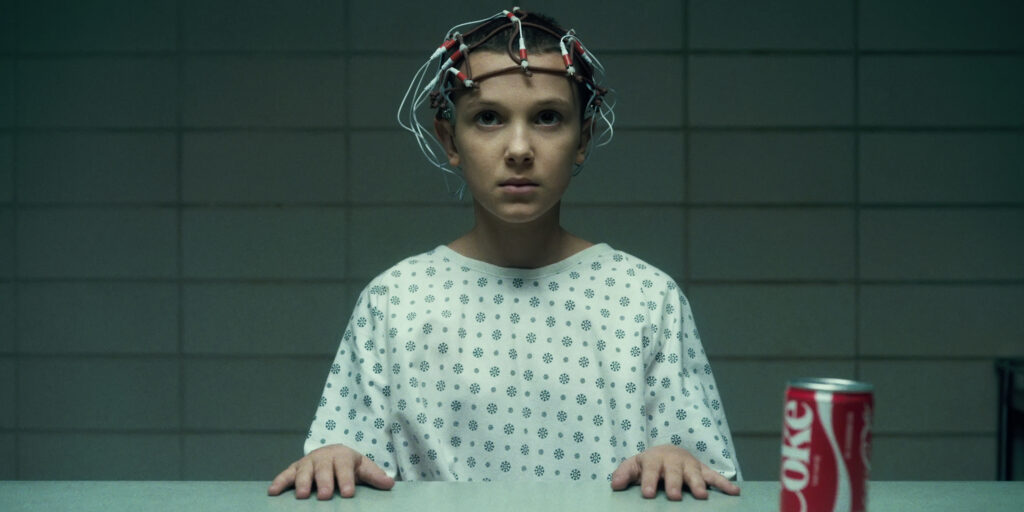
What did they think when Tangerine Dream dropped their cover version of the theme from ‘Stranger Things’?
“My first reaction was, ‘Awesome!’, then ‘Hey, wait, who’s even in Tangerine Dream now?’,” laughs Kyle.
“A bunch of young people?” asks Michael.
“I thought I saw something that said they weren’t going to do anything more when Edgar Froese died, but obviously that’s not the case,” says Kyle.
There’s a track called ‘Sorceror’ on the S U R V I V E album, was that a deliberate reference to Tangerine Dream?
“We did think about changing the title because of the movie,” says Michael, “but we decided we liked it.”
Kyle: “And we misspelled ‘Sorcerer’…”
Michael: “Did we?! Oh, well, it’s better this way.”
Kyle: “It’s an intentional misspelling.”
All this talk of scoring ambition and Tangerine Dream is rather overshadowing their fine new album. The ‘Stranger Things’ score rattles along with 75 tracks across two volumes, many clocking in at around a minute or under, each titled with memory jogging scene titles like ‘One Blink For Yes’, ‘Walking Through The Upside Down’ and ‘Hopper Sneaks In’.
‘RR7439’ by contrast is a more satisfying expansion of the electronic mood pieces you’ll find on ‘Stranger Things’. The same air of mystery and dread clings to much of it, particularly the likes of the hazy ‘Low Fog’.
When the synths start really pounding, like on ‘Copter’ and the particularly woozy ‘Wardenclyffe’, the wider screen reveals Dixon and Stein’s talent for melody, which is thoroughly rooted in the electronically cinematic. Big booming tunes emerge from atmospheres, oscillators waver, threatening to detune, until hugeness is once again submerged by the smallness. Shocks of sound, like the reverb explosions on ‘Cutthroat’, abound.
This clearly isn’t the sound of a Trojan horse band, functioning purely to deliver its co-writers the opportunities afforded by scoring TV shows; it’s a living, breathing reinvention of the very notion of a synth band, and the scoring of season two of ‘Stranger Things’ is going to have fit around other obligations.
“We’re touring the US in October,” says Michael, “probably coming to Europe late February. There’s a lot of stuff we have to consider and schedule around, and a lot of that gets forgotten. Everything’s up in the air, but we’ll definitely be busy in 2017.”
And what about scoring season two of ‘Stranger Things’, isn’t the pressure going to be intense the second time around?
“I think it’s going to be easier the second time around, because a) we’ve done it before, and b) we already know what the Duffers respond to and what works,” says Kyle.
No pressure for you, then?
“It’s going to be fun,” nods Kyle happily.
S U R V I V E’s ‘RR7439’ album is out on Relapse.
‘Stranger Things, Vol 1’ is available on vinyl via Invada
